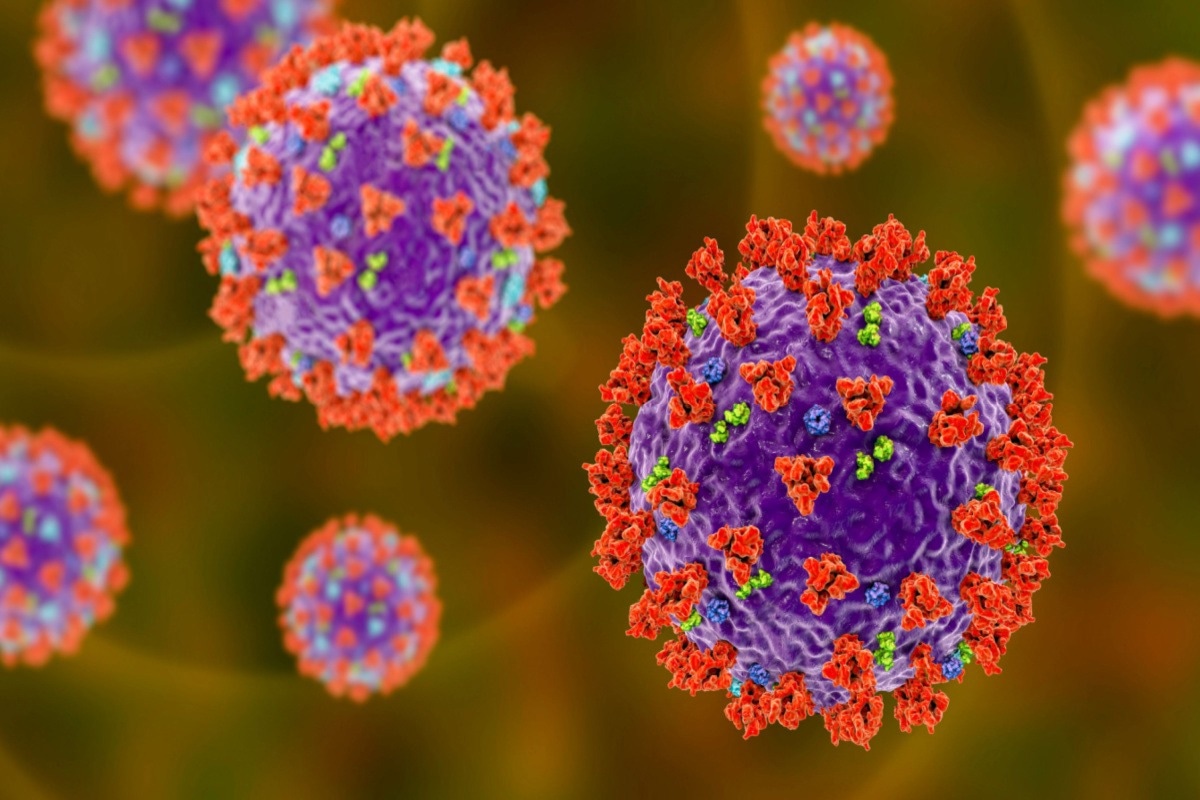In a recent article published in the PLoS ONE journal, researchers showed that the severe acute respiratory syndrome coronavirus 2 (SARS-CoV-2) nucleocapsid (N) and spike (S) proteins did not activate γδ T cells and dendritic cells (DCs).
 Study: SARS-CoV-2 spike and nucleocapsid proteins fail to activate human dendritic cells or γδ T cells. Image Credit: Kateryna Kon/Shutterstock
Study: SARS-CoV-2 spike and nucleocapsid proteins fail to activate human dendritic cells or γδ T cells. Image Credit: Kateryna Kon/Shutterstock
Background
The host immune reaction to SARS-CoV-2 significantly influences the coronavirus disease 2019 (COVID-19) outcomes. Severe SARS-CoV-2 is linked to neutrophil and macrophage activation and migration to the lungs and increased serum levels of cytokines and chemokines such as interleukin-6 (IL-6), IL-1β, interferon-γ (IFN-γ)-elicited protein 10 (IP-10; also termed as CXCL10), and tumor necrosis factor-α (TNF-α). It is also associated with functional exhaustion and depletion of circulating CD4 and CD8 T cells, B cells, natural killer (NK) cells, follicular helper T cells, and innate T cells like mucosa-associated invariant T (MAIT) cells, natural killer T (NKT) cells, and γδ T cells. While γδ T cells might have a role in protecting against SARS-CoV-2, the mechanism behind the process is unknown.
About the study
In the present work, the researchers examined the two most prevalent SARS-CoV-2 structural proteins, S and N, providing immunogenic peptides for identification by conventional T cells. This was to determine whether they could trigger human γδ T cell subsets, like Vδ2 and Vδ1 T cells, either directly or in the vicinity of dendritic cells (DC). The team analyzed whether N or S proteins can stimulate cytokine generation by γδ T cells with or without DCs.
Blood samples anticoagulated using ethylenediamine tetraacetic acid (EDTA) were drawn from two COVID-19 patients at St. James's Hospital in Dublin and healthy Irish Blood Transfusion Service volunteers. Importantly, recombinant SARS-CoV-2 N and S proteins were used for the experiments.
Results
The study results indicated that SARS-CoV-2 N, S proteins, or peptides matching immunodominant areas of these proteins did not directly stimulate Vδ2 or Vδ1 T cells to generate TNF-α or IFN-γ, either within peripheral blood mononuclear cells (PBMC) or in total γδ T cell cultures. Furthermore, the S, N proteins, or peptide pool mixtures did not specifically induce DC maturation or cytokine generation. Additionally, when co-cultured DC was treated with S and N proteins or peptides, no TNF-α stimulation or IFN-γ generation was seen.
Initially, the authors noticed that the SARS-CoV-2 N protein caused robust IL-12 generation by DC and subsequent stimulation of Vδ2 and Vδ1 T cells. Nevertheless, protease digestion of the N protein did not stop this action. The exposure to a second N protein preparation had no stimulatory effects on either γδ T cells or DC. Therefore, the observed stimulatory function of the N was likely associated with contaminated non-proteinaceous material, such as lipopolysaccharide (LPS).
Interestingly, LPS activation of DC resulted in the production of IL-12 and the subsequent activation of Vδ2 and Vδ1 T cells. This inference suggests that DC production of cytokines contributes to the stimulation of γδ T cells and that DC excitation in response to ribonucleic acid (RNA) sensing could similarly stimulate γδ T cells. The release of TNF-α and IL-12 by DC after activation with polyinosinic: polycytidylic acid and subsequent generation of TNF-α and IFN-γ by co-cultured γδ T cells support this theory. Therefore, signals generated by myeloid cell stimulation were most likely the secondary cause of γδ T cell stimulation in COVID-19 patients.
The scientists discovered that the S protein did not activate the generation of TNF-α or IL-12 by monocyte-stemmed DC. On the other hand, LPS, a different toll-like receptor 4 (TLR4) agonist, triggered DC to produce potent cytokines and successive stimulation of γδ T cells. Since SARS-CoV-2 S protein failed to excite DC in the current setup indicates that DC stemmed from monocytes and macrophages will react to TLR4 ligation differently or that various forms of LPS will activate DC and macrophages differentially.
Conclusions
Collectively, the study findings indicate that SARS-CoV-2 S and N proteins do not stimulate DC or γδ T cells. The team suggests that immunological identification of other SARS-CoV-2 structural proteins or viral RNA by γδ T cells or other immune cells, including DC, that release γδ T cell-stimulatory ligands or cytokines, is what causes γδ T cell activation in SARS-CoV-2 patients.
The authors emphasized the necessity of additional investigations utilizing whole SARS-CoV-2 virions instead of recombinant S and N proteins. This was to ascertain whether the SARS-CoV-2 can directly activate γδ T cells or whether it must first cause the generation of γδ T cell-stimulatory cytokines or ligands by other innate immune cells, like DC.